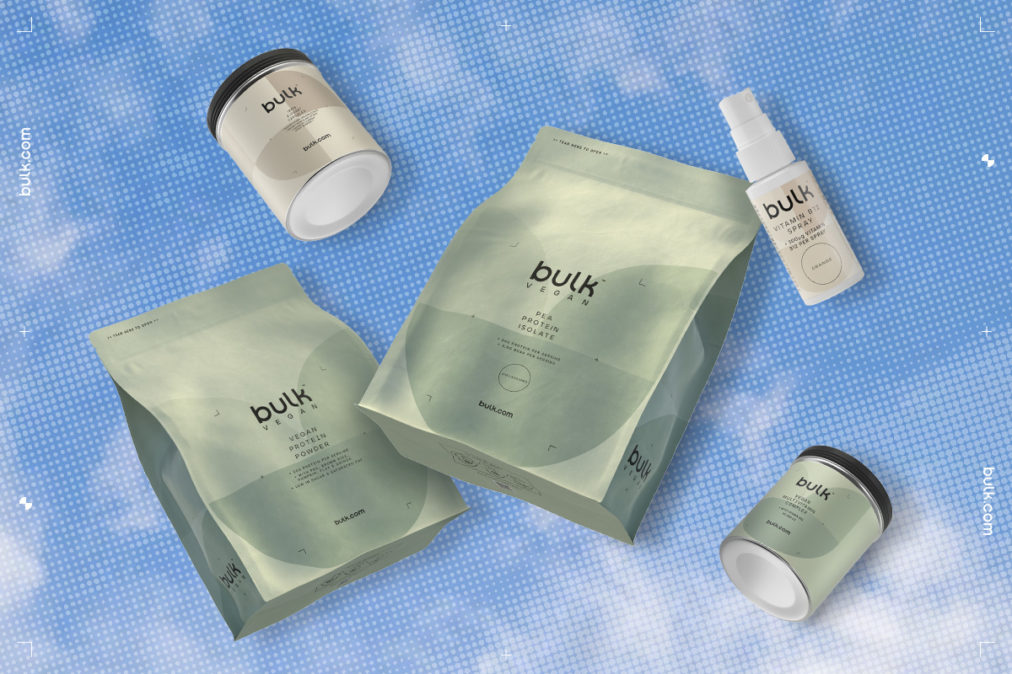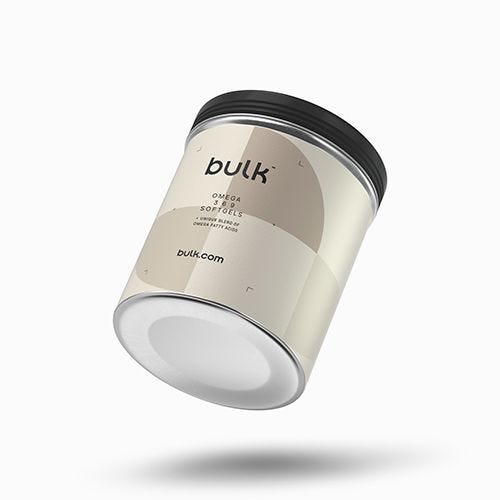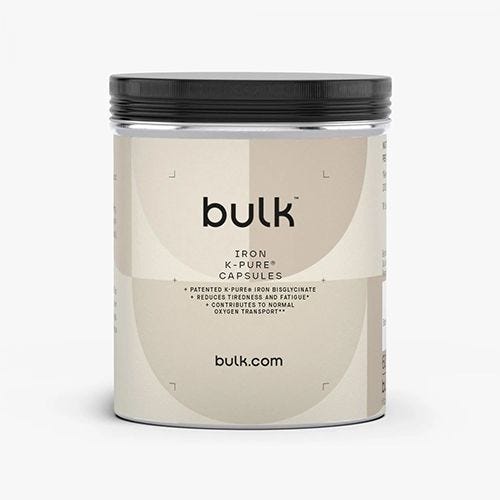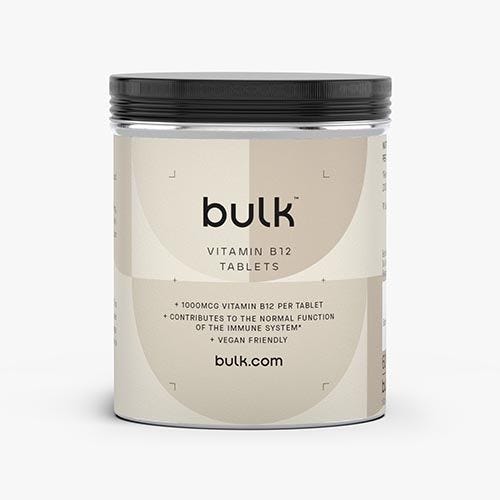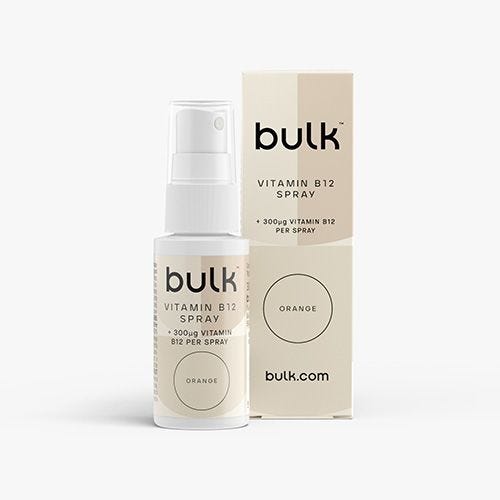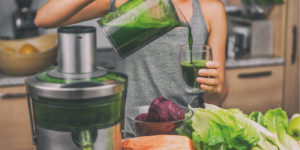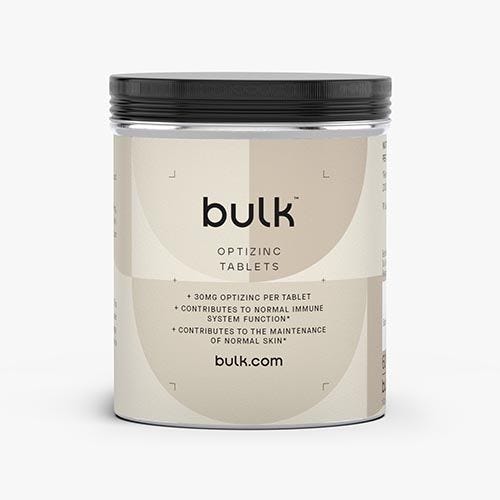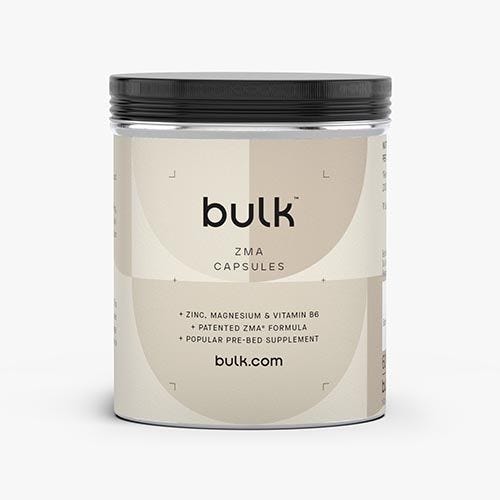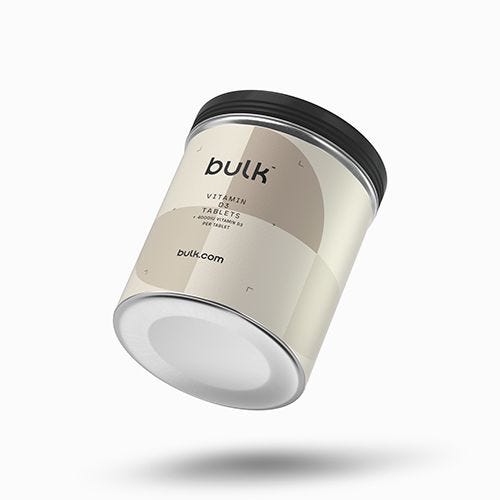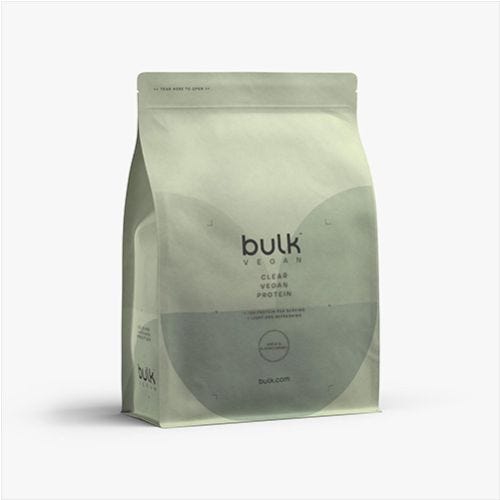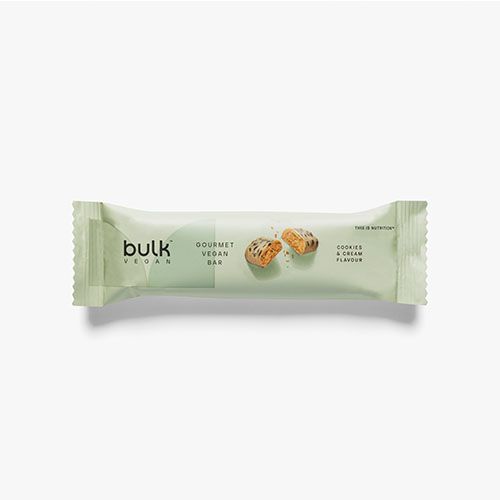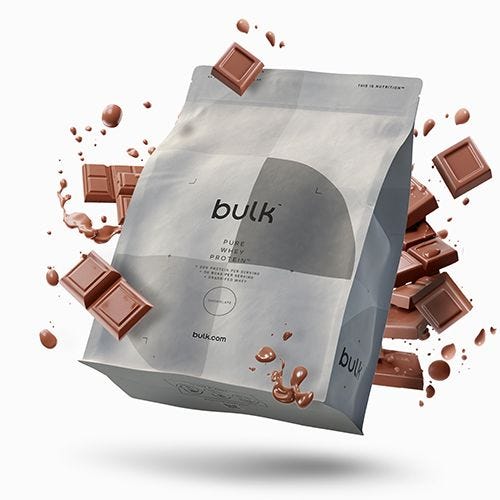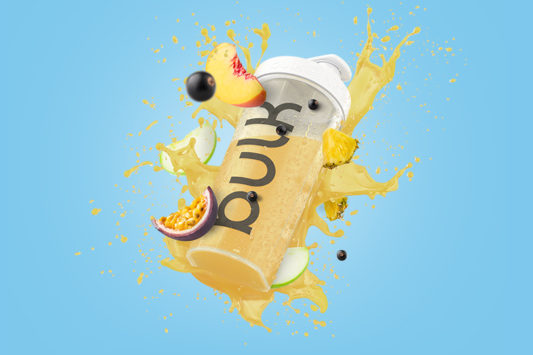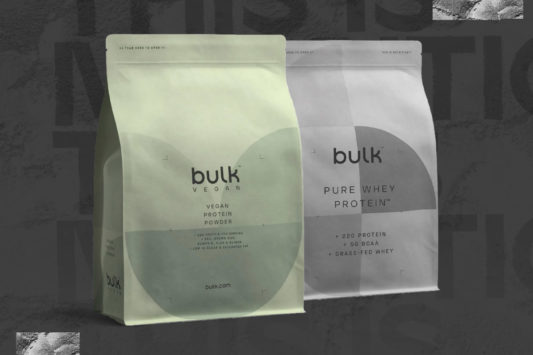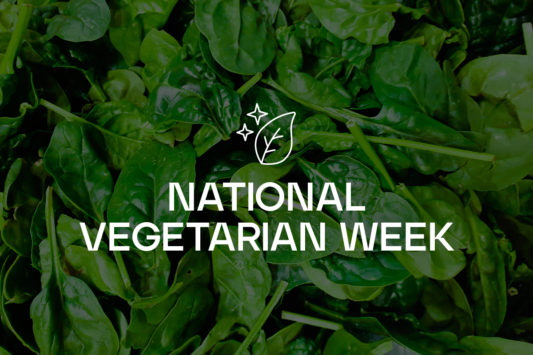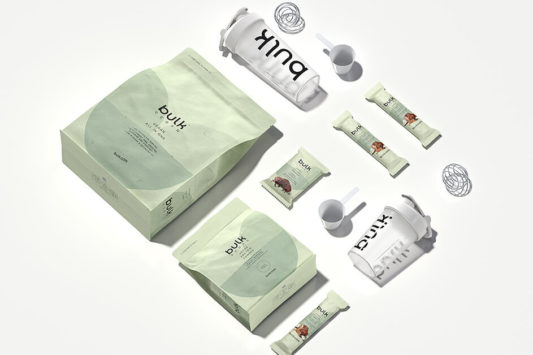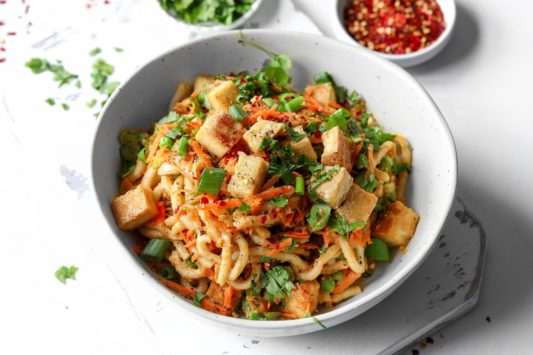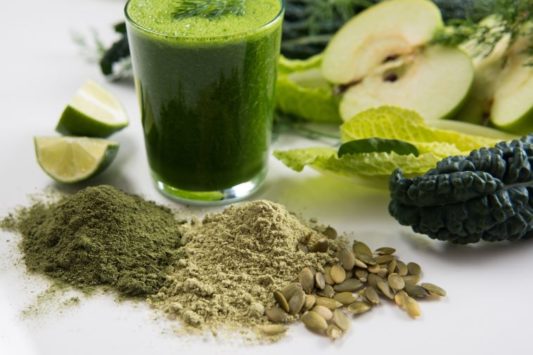Growing at a rapid rate, vegan diets are becoming more mainstream than ever before. 2020 was a record-breaking year for veganism as its popularity soared to new heights. Vegan supplements are also on the rise.
More information is now understood around the important vitamins for vegans and how to support people following a plant-based diet. Reports show the number of vegan-related searches online has almost doubled since 2015, and the number of people following plant-based diets is increasing. And with no signs of slowing down.
According to analysts, young women are the driving force behind this growth. However, there are many reasons why people choose to go plant-based or reduce their meat consumption. The most common motivators are health improvement, animal welfare, environmental concerns, weight management and taste. Some people simply don’t enjoy eating animal products.
Plant-based and plant-forward diets focus on eating foods exclusively (or primarily) from plants. These include fruit and vegetables, whole grains, legumes, pulses, nuts, seeds and oils. It is possible to get the nutrients you need from a plant-based diet, but it takes a bit of planning. Choice and personal taste also come into it. Supplements can be beneficial, so let’s take a look at the best vitamins for vegans and vegetarians to optimise health. For another article on the most important vitamins in general, see it here.
1. VITAMIN B12
Whilst anyone can have low vitamin B12 levels, studies show that vegetarians and vegans have a higher risk of deficiency. Vitamin B12 is important for many processes in the body, and low vitamin B12 levels can lead to damage to the nervous system, anaemia, infertility, and bone and heart disease.
Where can vegans get B12?
Typical foods rich in vitamin B12 include beef, chicken, fish, shellfish and eggs. Although eggs are suitable for vegetarians, the others are not vegan. The only reliable method for vegans to get enough vitamin B12 to achieve this is by eating fortified foods or taking a vitamin B12 supplement .
2. FOLATE
Folic acid and folate are both forms of vitamin B9. Folate is the form that occurs naturally in foods and in the body, whereas folic acid is the version found in fortified foods and supplements. Foods rich in folate include leafy greens, beans, peas, and lentils. It’s a good idea for women of childbearing age to consider a folic acid supplement of 400 micrograms as nearly half of all pregnancies are unplanned and folic acid significantly reduces the risk of a baby developing birth defects like spina bifida.
The oral contraceptive pill depletes folate levels in the body, increasing the need to take a precautionary folic acid supplement. Without supplementation, expectant mothers are also at risk of anaemia due to the increased folate needs of the developing baby. For maximum protection, folic acid should be taken eight weeks before conception and during the first trimester.
3. IRON
Women are thought to be at particular risk of iron deficiency, including those on a vegetarian or vegan diet. Although meat is a potent source of iron, there are lots of plant foods that contain good amounts of this mineral including pulses, tofu, dark green vegetables, whole grains and chia seeds.
It’s recommended to combine foods rich in iron with foods high in vitamin C to improve absorption such as peppers, broccoli, kiwis, and citrus fruits. Vegans that don’t get enough iron from their diet should consider fortified foods or taking iron capsules. This being said, overly high iron levels can be harmful and iron supplements are not suitable for everyone. Consult with a doctor or nutritionist before supplementing.
4. OMEGA-3 FATTY ACIDS
Omega-3 is an essential fatty acid, rich in EPA (Eicosapentaenoic acid), Alpha-linolenic acid (ALA), and DHA (Docosahexaenoic acid), which play an important role in keeping our hearts, brains, skin, hair, and nails healthy. Predominantly found in food sources such as fatty fish (salmon, mackerel, sardines, etc), walnuts, chia seeds and flaxseeds. To gain all three fatty acids, vegetarians and vegans can reach the recommended intake by supplementing with a vegan-friendly Omega 3 6 9 supplement or algae oil.
5. IODINE
Getting enough iodine is vital for healthy thyroid function, which controls metabolism. Vegans are considered to be at the highest risk of iodine deficiency which can lead to hypothyroidism. This can cause low energy levels, dry skin, tingling in hands and feet, low mood, forgetfulness and even weight gain. Foods considered to have high iodine levels include seafood, seaweed, iodised salt and dairy products. Therefore, vegans who don’t want to eat seaweed or use iodised salt several times a week might consider supplementation.
6. ZINC
This mineral is crucial for metabolism, immune function and the repair of cells in the body. A zinc deficiency can lead to hair loss, developmental problems, delayed wound healing and diarrhoea. Few plant foods are high in zinc and the absorption of this mineral from some plant foods can be limited.
What’s the best zinc for vegans and ve
getarians?
The NHS recommends that everyone is encouraged to aim for 9.5mg a day for men (aged 19 to 64 years) and 7mg a day for women. You should be able to get all the zinc you need from your daily diet. To boost your intake, eat a variety of zinc-rich foods such as whole grains, tofu, legumes, nuts, seeds and sprouted beans. Plant-eaters that don’t gain a lot of zinc from their diet should consider taking a daily zinc supplement.
7. CALCIUM
Calcium is a hugely important mineral for the health of bones, teeth and muscles, along with the circulatory and nervous systems. However, many people fail to meet the recommended daily intake of calcium, including vegans.
People often consider dairy as the only source of calcium. However, this mineral is actually naturally present in a wide array of plant foods such as soy products, beans, peas, lentils, seaweed, leafy greens and almonds. Aside from the foods with naturally occurring calcium, there are also many foods fortified with this mineral such as cereals and milk alternatives. It is therefore recommended that you eat a variety of these foods to ensure you are meeting your calcium needs when following a vegan diet.
8. VITAMIN D
It’s worth noting that the body needs vitamin D to regulate the amount of calcium in the body. These nutrients help keep bones, teeth and muscles healthy. However, vitamin D is another nutrient that can often be lacking IN those following plant-based diets.
Aside from exposure to sunlight, good vegan sources of vitamin D include fortified breakfast cereals, fortified plant milk, fortified fat spreads and vitamin D tablets. If you have allergies or struggle to eat a lot of food, taking a calcium and vitamin D supplement would be a safe bet to keep hitting your daily intake.
9. PROTEIN
Protein is a key macronutrient used in every cell of our body for a huge range of functions, and it’s important to make sure you’re getting enough.
The vegan society suggests that In the UK, for an average person not undergoing strenuous physical activity, a daily intake of 0.75g of protein per kilogram of body weight. For example, a person weighing 85kg would require a protein intake of about 65g per day to stay healthy. Some research indicates that vegans require a higher protein intake because of the way that our bodies handle plant protein. A daily intake of 1g per kilogram of body weight has been suggested (85g for 85kg person).
For information on recommended protein intake for muscle growth, see our article on how much protein your body can absorb.
It can sometimes be difficult to achieve an ideal amount of protein on a vegetarian or vegan diet. As well as this, it can sometimes be difficult to get all nine essential amino acids – the building blocks of protein – from plant sources, as this requires getting a wider range of plant foods throughout the day.
Protein powder supplements come in lots of different varieties – whey protein is probably the most commonly used, and it’s vegetarian-friendly. However, there are a lot of great options for vegans too. Common vegan protein powders include soya protein isolate, pea protein powder and hemp protein powder.
At Bulk™ our most popular vegan protein powder is a blend of five premium vegan protein sources including pea protein and brown rice protein. It’s gluten- and soya-free, perfect for anyone with any dietary restrictions.
Do vegetarians really need supplements?
This depends on what the diet looks like. Often, vegetarians can get enough essential nutrients from the food they eat each day. Vegetarians can eat eggs and dairy products, so they can typically get enough vitamin B12, vitamin D and iodine from those, as well as some from plant sources. However, if the diet is lacking in eggs and dairy, supplementation could be beneficial, particularly vitamin B12. It’s also important to remember that everyone in the UK should supplement vitamin D between the months of October and March due to a lack of sunlight, regardless of their diet.
Should you take a multivitamin when you’re vegan?
Multivitamins created specifically for vegans, such as Vegan Multivitamin, are useful and provide several important vitamins and minerals to support your body alongside a balanced and varied diet.
Is B12 in a multivitamin enough for a vegan?
Typically, yes. It depends on the amount of vitamin B12 in the multivitamin. The recommended daily intake for vitamin B12 is 2.5 micrograms per day, so make sure your supplement contains that, or something close to that, if you’re a vegan.
Summary
Following a plant-based diet can offer many health benefits, however, preparation and planning are key. Supplementation can be incredibly helpful to ensure you’re getting the recommended amounts of essential vitamins and minerals that you need – for anyone.
Related articles
Eager to learn more vitamins? We believe that every person, with support, has the right to transform their lives through fitness. That’s why we’ve put together hundreds of articles with expert advice, all to help you on your fitness journey. With ultimate guides, information and benefits, check out our vitamin-related articles below:
Benefits of Curcumin and Vitamin D What do Zinc tablets do?
What are the best vitamin supplements? Benefits of Vitamin D3
Which is multivitamin should I take? Ultimate guide to vitamins and minerals
Which Vitamins do I need? How to boost your energy levels
What are the most important vitamins? Benefits of Fibre
